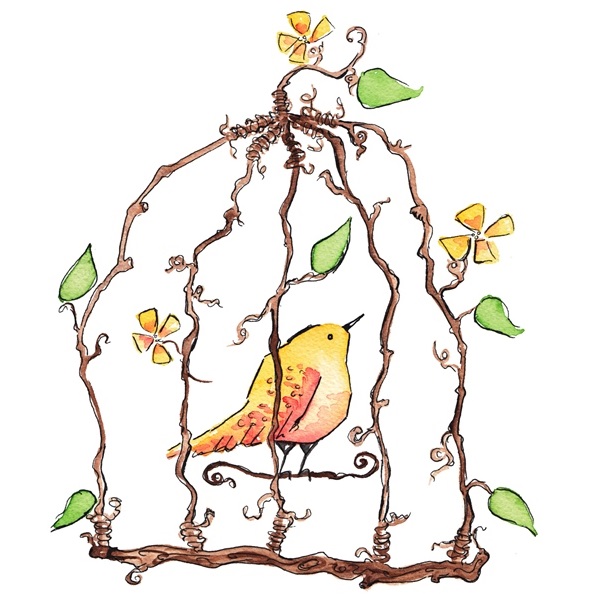 A mom knows her baby birds will one day fly away. It’s a fact of life—when the time is right, the young leave the nest.
A mom knows her baby birds will one day fly away. It’s a fact of life—when the time is right, the young leave the nest.
I spent my whole adult life preparing my children to leave. When the time came, I wasn’t ready.
I cried.
Driving away from the school the day I dropped my youngest off at college, tears started the minute I was outside the city limits—salty tears that forced me to the side of the road where I sat for a while, sobbing.
It’s a curious truth that, as parents, we tend to stay in place and only move forward when our children do.
“You have the house and the white picket fence. The mini-van is parked in the garage, and every room in your home is filled with the colors of childhood. You spend your weekends at the zoo, taking in the latest Pixar animation, and plan vacations to places like Disney World. Your every decision—from what neighborhood you live in to what food you stock in the fridge—is based on what is best for your child . . . then, in no time at all, you find yourself sitting at your child’s college graduation or wedding dealing with empty nest syndrome and wondering what you will do with your life now.” —Professor’s House
Having lived vicariously through my daughter all of her life, her going to college was a wonderful adventure I was somehow going to vicariously experience . . . or so I thought.
In the daze that followed, reality set in. I wasn’t going anywhere, vicariously or otherwise. My daughter was busy with this new chapter in her life. And with both of my children now grown and on their own, I had nowhere to go but back to my big, quiet, empty house.
I moped around for weeks, alone for the first time ever in my life, with nothing more to do than take care of myself. My role as a mother was finished; and without this defining force in my life, I felt I had no real identity.
I am here to tell you—there is life beyond motherhood. It doesn’t come quickly, it doesn’t come easily, but it does come.
This is my best advice
- Be gentle with yourself. What you’re feeling is perfectly normal.
- Stock up on tissue; you will cry.
- Be patient. Allow yourself time to grieve, work through the loss, and rebuild your life.
- Lower your expectations. Your child might not call every day. Accept it. It doesn’t mean they don’t love you.
- You’ll have good days, you’ll have bad days. Take each day as it comes.
- Keep busy.
- Get selfish. Focus on your own life. It doesn’t mean you don’t love your child.
- It doesn’t matter what other people think or say about moving on.
- Stay positive. Compliment and offer kind words to others. It’ll make them feel good . . . it’ll make you feel better.
- Stay positive with your child. Don’t burden them with your anxiety. They have enough on their plate.
- If you have a spouse, partner, or significant other, talk to them. They might be hurting, too.
- If you need a friend, don’t hesitate to reach out.
- If your feelings are debilitating and preventing you from enjoying life, seek professional help. Seriously.
It was a year or so before I could shake the emptiness I was feeling.
Once I accepted the changes in my life and adjusted to them, I started to embrace and enjoy my new freedom as well as the opportunities that came with it.
“Imagine transplanting a flower or bush to a new location . . . there’s an initial shock to the system, but planted in its new surroundings, it extends new roots and eventually establishes itself more firmly than before. And the hole that’s left behind can be filled in with fertile soil ready to nurture new opportunities.” —Linda Lowen
In an article by journalist Linda Lowen, “Time to Fly—Surviving an Empty Nest,” empty nester Mindy Holgate describes the process of letting go as “similar to paying out rope: First you ease it little-by-little; then suddenly it just slips out of your hands, and you’ve let go.”
So true . . . when I finally did let go, my life began to bloom independently on its own.